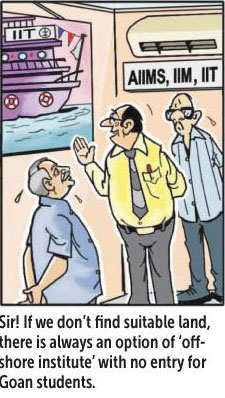According to the declaration of the meeting of the Central Supreme Committee on National Action Plan, Sharif declared that the war against terrorism is necessary to protect the existence of Pakistan, and that no one can be allowed to challenge the supremacy of the country.
Earlier in Islamabad, Chinese Minister Leo Jian Chao said that China’s capital investment in Pakistan is linked to internal stability and a better security system. Immediately after this demand, there was a political stir in Pakistan, there was a discussion of making 'SOP' for the security of Chinese citizens, but also announcements of a new military operation 'Azm-e-Istehkaam' to end the militancy. One wonders why China is demanding internal stability despite friendship. It also means that China is showing interest in capital investment in Pakistan.
Addressing the Pakistan-China meeting in Islamabad, Chinese Minister Leo Jian Chao said that the agreements between Pakistan and China will create new opportunities for development, but development requires internal stability. The Chinese minister said security threats are the major obstacles in the China-Pakistan Economic Corridor (CPEC), making it clear to all Pakistan's political leadership that the security situation will have to improve for capital investment.
In the case of Pakistan, the security situation is such that it has shaken the confidence of China's capital investors and the CPEC-friendly media has to take it seriously. The environment should be given serious thought. In his speech at the meeting, Pakistan's Deputy Prime Minister and Foreign Minister Ishaq Dar emphasized the consensus of all parties on CPEC and said that the second phase of Pakistan-China friendship would further strengthen. Opposition Jamiat Ulema-e-Islam (F) leader Maulana Fazlur Rehman and PTI (Pakistan Tehreek-e-Insaf) Barristers Ali Zafar and Rauf Hasan were also present in the meeting.
After the Chinese Minister's speech, a statement was also issued by the Home Ministry of Pakistan, according to which, in a meeting chaired by Union Home Minister Mohsin Naqvi, the measures to be taken for the security of Chinese citizens were reviewed. The meeting was briefed on the security plan and overall situation from the relevant organisations, while the security situation in the country was also discussed in the meeting. China has invested 26 billion dollars in Pakistan in the first phase of CPEC but the work is almost complete. It had about 60 projects, most of which were related to infrastructure and energy sectors. Unfortunately, in the last 10 years, Chinese citizens have been attacked, causing casualties. Now China has made it clear that it will invest only where the security situation is good, and they will not compromise the security of Chinese citizens. Unless Pakistan takes clear steps and improves the situation, China will not go into Phase 2. While informing about Phase 2, Pakistan's Foreign Minister Ishaq Dar said that a consensus was reached on upgradation of industrial parks in the next phase of CPEC. Special Economic Zones will also be created in the next phase of CPEC, while many opportunities for trade and sustainable development have been explored.
The interests of China and Pakistan are intertwined. It is normal for China to say this because China is speaking as a friend. When China talks about the security of its citizens in Pakistan, it is also sending a message that it is willing to cooperate in this area through 'geo-economic' and 'geo-strategic' channels. Chinese Minister Leo Jian Chao met Prime Minister Shehbaz Sharif and Army Chief General Asim Munir. Immediately after the meeting, a meeting of the Supreme Committee for National Action Plan was held under the chairmanship of the Prime Minister. In this meeting, the army was also approved to launch 'Operation Azm-e-Istehkaam' to eliminate the militants.
Shehbaz Sharif said, “Stability and the rule of law are essential for the sustainable development of the country. It is my responsibility and all of us to enforce the laws of the country and hope that all (States) will do their best against terrorism. Our political and religious leadership should be absolutely clear about this. War on terrorism is essential. The central government bears the cost of the army's fight against terrorism. We will create laws to strengthen the voice of the government. We will leave no stone unturned to meet the needs of the Army against terrorism. We have to make laws that can end hate speech. There can be no greater crime than abusing freedom of expression and flouting the constitution. Laws have to be enacted that can end the story of hatred and division.”
It remains to be seen if this belated wisdom of Pakistan's Prime Minister comes into reality. China's readiness to invest more in Pakistan will definitely have to be watched by India.
